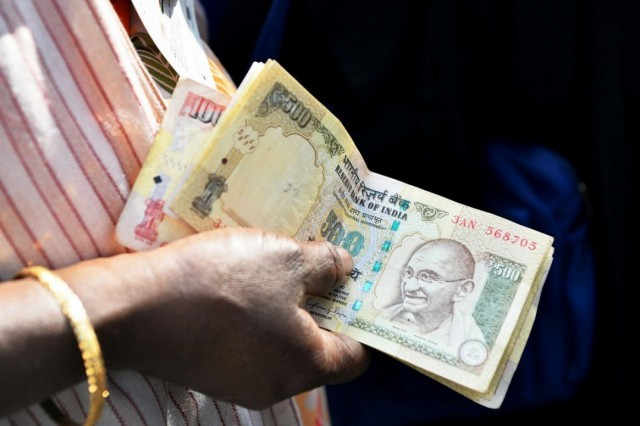Studies, thinkers, the general public and governments are rethinking the concept of wealth and the extent to which causes personal satisfaction. Some even analyze what particular kind of consumption is associated with greater happiness. We review different approaches and studies in an attempt to find an answer.

Although Japanese real per capita income has increased fivefold (between the 50s and 90s), average satisfaction with life has practically not increased at all, the study explains. "With more money, can we buy more happiness? ", of IESE, which sees similar patterns in other advanced economies such as the United States.
Nor did the lottery winners, surveyed a year after luck smiled on them, express a significant increase in their well-being compared to the rest of the total population. "If society becomes accustomed to, or adapts to higher levels of consumption as income increases, there will be no gain in the indicators of happiness observed," say Manel Baucells and Rakesh K. Sarin, authors of this study that synthesizes and compares many others around happiness and wealth carried out in the last decades.
What we mean by wealth varies enormously, as shown in the latest Triodos Bank campaign in the Netherlands, in which people from different backgrounds have been asked what they understand by it. "True wealth is not how much I have got, rather it is what value I can create and provide in my world for which people will still want to reward me," explains the American philosopher Douglas Rushkoff, for whom "we have to stop thinking about how to extract value out of others and think of how to exchange it", since "enriching yourself means enriching others too".
True wealth is not what I can turn to, it is what value I can create and provide in my world where people will want to reward me
True riches: knowledge
Angaangaq, an elder of a Greenland tribe, believes that "true riches are knowledge". Descendant of a time and a means in which "there were no shops" and life was based on hunting and the common exchange of goods and abilities, he indicated that "the more I share my knowledge, the richer I am. And, of course, if I'm richer, I can give more. the more I give, the more I receive, in a circle without beginning or end and to which we all belong". "For me, wealth is being able to share and that brings satisfaction", adds Isabel Rupschus, a Dutch citizen who lived without money for a period in her life, exploring other forms of exchange. She gives a simple example: "I have read this book three times, so why do I still need it yet?" Along with the works that indicate that more economic wealth is not synonymous with greater happiness, however others go in the opposite direction. "In a society, richer people are happier than poorer people", observes a recent study by the ONS, the British equivalent of the National Institute of Statistics which, at the same time, also considers that "the average well-being of a country does not improve despite substantial increases in per capita income". The debate is still active, also at the public level.
Global entities such as the United Nations advisory group Sustainable Development Solutions Network, which promotes going beyond conventional economic indicators through its annual global report on happiness, Eurostat and INE, which have been working for years to measure Economic and social progress, with new elements such as the overall satisfaction and happiness of the population at large. Which do you prefer, money or time?
"Cutting spending is a way of earning time, which is one of today's great lost treasures. Who sleeps eight hours today?" poses Toni Lodeiro, member of Options and author of "Consume less, live better". Something similar has been brought up at the University of British Columbia, Canada, involving more than 4,600 participants in six related studies.

In the dilemma between having more time or more money, the respondents were distributed almost equally, but according to the director of the study, Ashley Whillans, "having more free time seems more relevant to happiness than having more money". A choice that we are not always able to have, but that certainly encourages us to reflect on our lifestyles. "Our parents lived to work and to save; today, we live to work and consume", says Lodeiro, who points out how the house, the car and the holidays - have enchained many people. "But having a second home or going on a long holiday does not necessarily make us happier than having more time in our daily lives or working on something that we like doing, even if it is worse paid," he says.
Happy consumption
Exacerbated consumption would not increase our personal satisfaction and even might contribute to a deterioration in our mood, a psychological study in the magazine Motivation and Emotion shows, in Knox College in the United States. On the other hand, certain patterns of consumption can enhance our daily lives. In "Happy Money: the Science of Intelligent Consumption," co-written by academics Elizabeth Dunn and Michael Norton, based on a compilation of studies on the use of money and happiness, point out five key aspects: replace, where possible, material consumption by that of experiences, which remain in the memory to a greater extent; avoid routines in purchasing, since "abundance is the enemy of appreciation"; invest money in having more free time to be with family and friends; if possible, pay first and consume later, avoiding the anxiety of doing it the other way around; and donate or spend money on others.
Above all, money is security and therefore a necessary element, but in no case a guarantee of happiness
On this last point, extensive work from the Harvard Business School, with data from 136 countries, supports "a universal psychological constant: people from all over the world derive emotional benefits from using their financial resources to help others". Cross-checking this shows a correlation in 90% of the countries studied and, as a complementary support, contributes to its own fieldwork in Canada and Uganda, selected for their cultural diversity and different income per capita. In these, there were two different groups of people who were given a sum of money and encouraged to spend it on products or services, either on themselves or on others.
The conclusions present how those who were told to spend on others obtained greater personal satisfaction. In addition, the the amount of money used did not change the result, since subgroups were established according to the level of expenditure. "Avoiding income unhappiness is a good way to start being happy" admits Gonzalo Fanjul, a researcher and anti-poverty activist who, on the other hand, does not see "an intimate relationship" between money, wealth and happiness. For Fanjul, "Above all, money is security" and therefore a necessary element, but in no case a guarantee of happiness. Diego Isabel, promoter of the Global Hub for the Common Good, a thinktank citizen that promotes the Common Good Economy, complements this vision: "Unfortunately, the mantra of the current system is that the more money you have, the more you can consume, and the more you consume, the happier you are: it is repeated in advertisements, televisions and even in the educational system. We have to construct a different narrative that conveys that happiness depends on the quantity and quality of our human relationships, finding meaning in what we do, whatever our profession may be, and feeling that, through our work and presence, we contribute to the happiness of those around us".
(*) This article was originally published in Triodos magazine. We reproduce it here with the author's consent.










